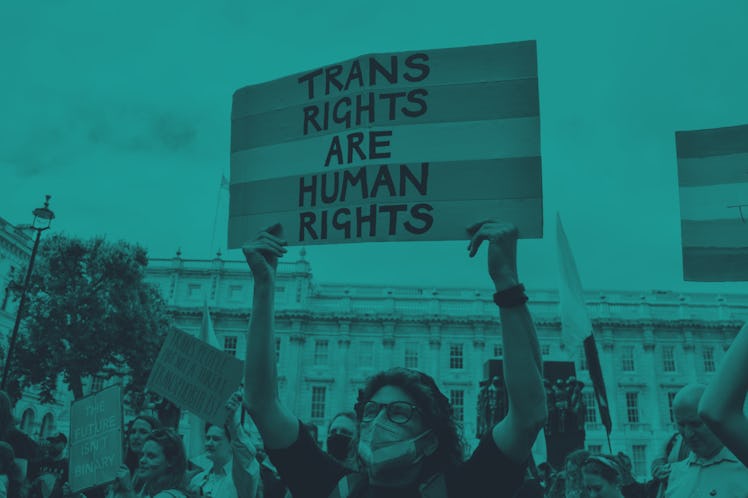Days After Pennsylvania Governor Vetoes Anti-Trans Sports Ban, A School District Passes Its Own
Just a handful of days after Governor Tom Wolf vetoed legislation that would ban trans kids from sports, a school district enacted its own ban.

Ten days ago, on July 8, Pennsylvania Governor Tom Wolf vetoed legislation in his state that aimed to ban trans kids from playing in sports in divisions that correspond to their gender identity. Governor Wolf stopped House Bill 972, also called the “Fairness in Women’s Sports Act,” — but a school district enacted its own ban. Here’s what you need to know.
The proposed “Fairness in Women’s Sports Act” is an attempt to block transgender kids from playing sports on teams that align with their gender identity. Should it have been passed, the Pennsylvania bill would have required sports or athletic teams for girls and women in public schools from primary through university to only be open to cisgender female students (those who were assigned female at birth).
However, the bill was vetoed by the Governor, who said, “that hate has no place in Pennsylvania” and made clear his firm stance that discrimination against trans kids is not acceptable. “The fact that this bill passed through Pennsylvania’s Republican-led General Assembly solely to bully and oppress vulnerable children is atrocious,” Governor Wolfe said in a press release. “These members should be ashamed of themselves for proposing and voting on policies that are discriminatory, unnecessary, and incredibly harmful.”
Despite the Governor stopping the bill from a state level, one school board made its own version of the act. Board members of the Hempfield School District in Lancaster County, Pennsylvania, approved a policy in a 6-2 vote that essentially goes forward with what the “Fairness in Women’s Sports Act” would have done.
“Separate athletic teams on the basis of sex preserve fairness, provide increased opportunity for girls, and are safer,” reads the updated policy, which went into effect immediately, according to The Hill. “As such, the district provides separate interscholastic athletic teams on the basis of sex.”
The policy says it will provide “reasonable accommodations” for girls who want to play on boys’ sports teams when a “female team for that sport” isn’t available during the school year. However, there isn’t a similar accommodation available for cisgender boys or transgender girls wishing to play on girls’ teams.
Following the school board’s vote, Jim Mauer, a board member who voted against the new policy, worried out loud whether the new measure would make the school district vulnerable to lawsuits related to sex-based discrimination. Such suits would jeopardize the school’s federal funding through Title IX.
“We’re at risk for further lawsuits in the future which would take away dollars that should be available for our students for educational needs,” Maurer warned, according to Lancaster Online.
Pennsylvania is one of many states that have recently moved to ban trans kids from sports, successfully or unsuccessfully. Similar legislation to what Governor Wolfe vetoed has already been passed in 18 states despite no scientific consensus on whether testosterone-fueled puberty gives trans girls and women an athletic advantage over their cis counterparts after they have taken estrogen for some time.
Trans experts and advocates argue that when it comes to youth sports, teamwork, discipline, sportsmanship, exercise, and the ability to have a fun outlet are far more important than winning. All of which makes the rush to ban trans kids from youth sports pretty pointless from a fairness perspective.
According to a recent report from the Trevor Project, nearly 20% of nonbinary and trans youth attempted suicide last year alone. This population is at a higher risk of suicide due to stigma and discrimination, which bills such as those that ban trans youth from sports continue to perpetuate.
This stigmatization has a significant adverse effect on our kids, and the risk of death is higher for trans youth who don’t have acceptance. Those that do have support from their family, friends, and community are 50% less likely to attempt suicide than those who do not feel supported, according also according to the Trevor Project.
The best thing we can do to protect trans kids is to ensure they feel supported. This means supporting their gender expression, respectfully discussing their identity, and using their names and pronouns correctly.
This article was originally published on